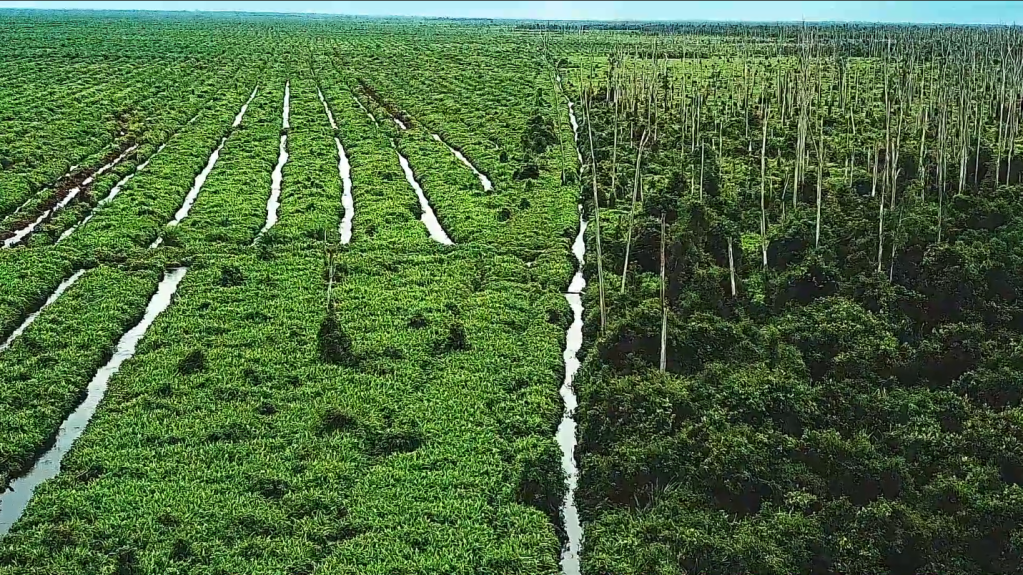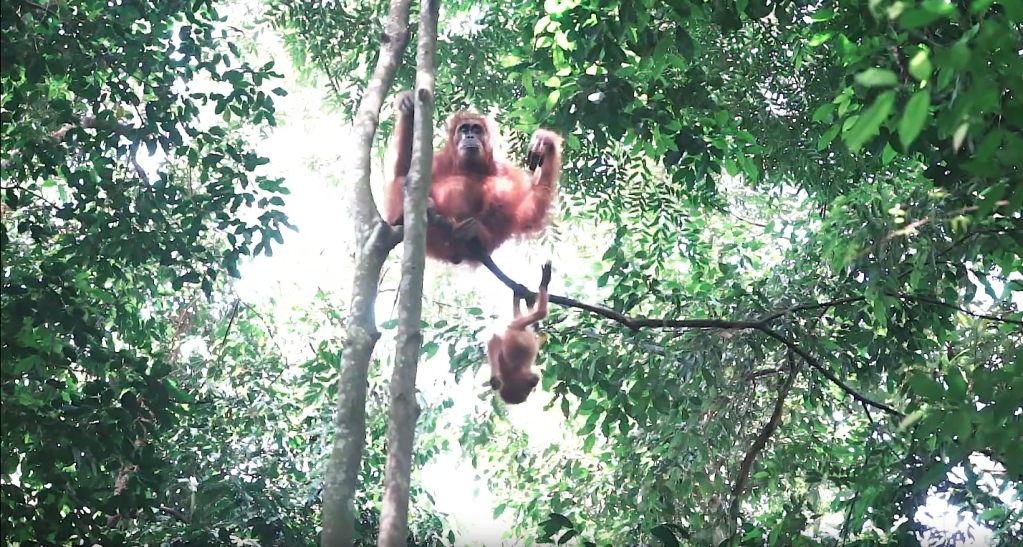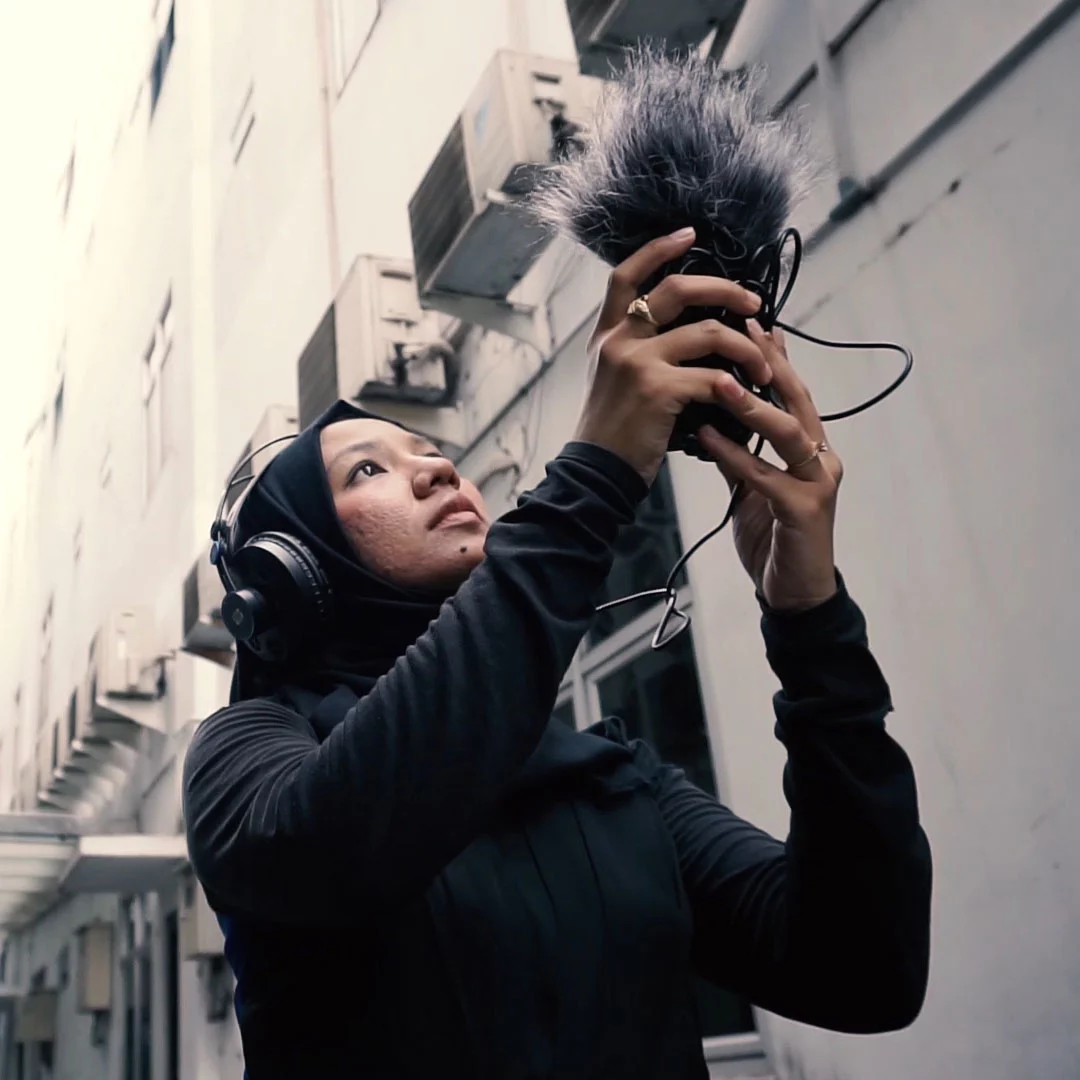The music flows easily, entangled like vines, in a production constructed between Berlin and Indonesia over Zoom. But in these serene melodies, there is a plea for the ecosystem of North Sumatra.
Environmental consciousness has violently escalated in our lifetimes. We’ve gone from a crisis that loomed somewhere in the future to one that we live through, right now – the flood waters, sometimes literally, reaching our feet. The twin realities have arrived, and we’re now out of prevention and into coping. There’s climate change, already underway in rising seas and catastrophic weather and temperature rises. And the COVID-19 pandemic is a real-time zoonotic terror, an indication of our fragile species and the dangers of encroached habitat made personal and direct.
Okay. That’s all broad, abstract, and emotionally impossible to grasp. Plus, it’s depressing – and we’re mammals, too. In a real sense, we biologically needs some togetherness and to process this in a human way if we are to be effective in making our place in our ecology positive again. (Stressed primates aren’t so useful, as we are discovering first-hand.) So let’s all travel mentally into the lush environment of Bohorok district in North Sumatra, an island in the enormous Indonesian archipelago.
The landscape the artists pan us through is part of the tropical forests of the 2.6 million-hectare Leuser ecosystem. It’s home to the critically endangered Sumatran orangutan, the gentle creature you see dangling in the trees.
Our friend American-born and Berlin-based Lyra Pramuk wasn’t able to be in the same room as Indonesian counterpart , so they collaborated over Zoom or sent sessions back and forth, they say.


It has a beautiful, liquid, free sensibility in the music. Actually, I’ve observed this in the past months – there’s some oddly wonderful potential in the latency in remote collaboration, if musicians have the ability to give themselves up to it. While that delay is a disaster for spoken conversation, musical exchange – once outside of fixed meter – seems to adapt naturally into a staggered dance across the milliseconds and timezones. (Goethe-Institut’s Virtual Partner Residency program assisted the exchange in the online space.)
Maybe it’s even better to play together over Zoom than to try to talk, and we’ve been doing all of this wrong.
Lyra’s digitally-layered chorus of overdubs is so convincingly organic that it almost blurs together, as though a chorus is blossoming out of the recording. The artists say they used Rani Jambak’s sampling of traditional Sumatran instruments, then built this lyrical serenade on top of it.
“We want to build a piece of music that reflects our hearts, that could show our deep hope for the environment and our dedication to its health,” Rani says in the Bandcamp description.
“We hope that our collaboration will stand as a powerful symbol for the potential of contemporary music culture to empower and heal across different cultures and traditions,” says Lyra.
I notice that apart from the title “Restore,” the sense of hope and music outside itself is embedded in the description. That aspiration to go beyond the self contrasts with the tendency to ego so often written into the DNA of music.
The music is futuristic, personable, and has this deep feeling of that liquid, gentle voice of Sumatran music. (Another bonus of more voices from across Indonesia in the international music scene has been to get the chance to appreciate the diversity, range, and complexity of cultures, plural, in the region – rather than take an exclusively nation-centered view.)
We don’t say this outright very often, but musical collaboration is often really challenging, even with similar musical backgrounds. What strikes me is that these voices are interwoven so exquisitely – they naturally resonate with one another.

There’s another dimension to this, which is that Rani and Lyra have also collaborated with the local NGO, Environmental Education Centre Bohorok (PPLH), which works on activism, education, and cooperative environmental activity in the region. That can comprise everything from a center that converts dung to fuel to taking schoolkids to check out a primate sanctuary. That organization released this statement to coincide with the music dropping on Earth Day last week:
“Environmental education and environmental awareness activities are still important for society today. Dynamic global life and rapid technological developments continue to threaten the environment, which is increasingly out of control due to activities carried out by humans ourselves, natural damage, deforestation, hunting of animals, damage to marine ecosystems due to accumulation of garbage, and others that have occurred directly in front of our eyes.
This intercontinental collaborative musical work by Rani Jambak & Lyra Pramuk is a strong sign and reminder for all the people of the earth who must be determined together to save the earth from the damage caused by sustained global warming.
In the commemoration moment of Earth Day 2021, we are still faced with the COVID-19 pandemic, which has almost changed the order of human life. The Restore Our Earth theme is an invitation to all people on Earth to be wiser in taking all actions related to nature and the environment. Together, we can prevent catastrophic climate change and environmental damage. Together, we can Restore our Earth.
One of them is by providing indirect support for earth-saving actions that can be done in various ways, such as supporting musical works as well as donating for forest saving activities and raising public awareness. This is so that people’s behavior and attitudes can bring more care to our environment, and provide awareness of the importance of protecting the environment so that it becomes a personal and sustainable agenda.”
Proceeds go entirely to support the PPLH Bohorok and its activities. You can check out the organization’s site in Indonesian and English:
https://www.pplhbohorok.or.id/
Rani Jambuk was featured recently by BBC News Indonesia. It’s all in Indonesian, but there’s video that adds some visuals to her soundscape world:
https://www.bbc.com/indonesia/indonesia-56648585
And not only should you throw out any monolithic view you have of Indonesia – its third biggest city Medan is full of contrasts, a syncopation of colliding variety translated by Rani Jambak and Evi Ovtiana into a composition (also with some Goethe support):
“Crossing Indonesia’s third biggest city, Medan, will leave behind one impression in particular: an emerging and dizzying city that is diverse in ethnicities, cultures and religions,” she says – and in both these videos you’ll see field recording as central to her practice.
Some more collaborations of her are on SoundCloud. Ignore the single-digit listen counts if you’re among the first to scroll this deep into my article – SoundCloud isn’t always so popular in Indonesia.
Rani Jambak · Nature (Rebimli)
If somehow you missed Lyra’s dazzling production imagination and vocal versatility, now is the time to find that anew, too (and it’s worth a dig into the earlier releases prior to the best-known Fountain, for a full range of work):